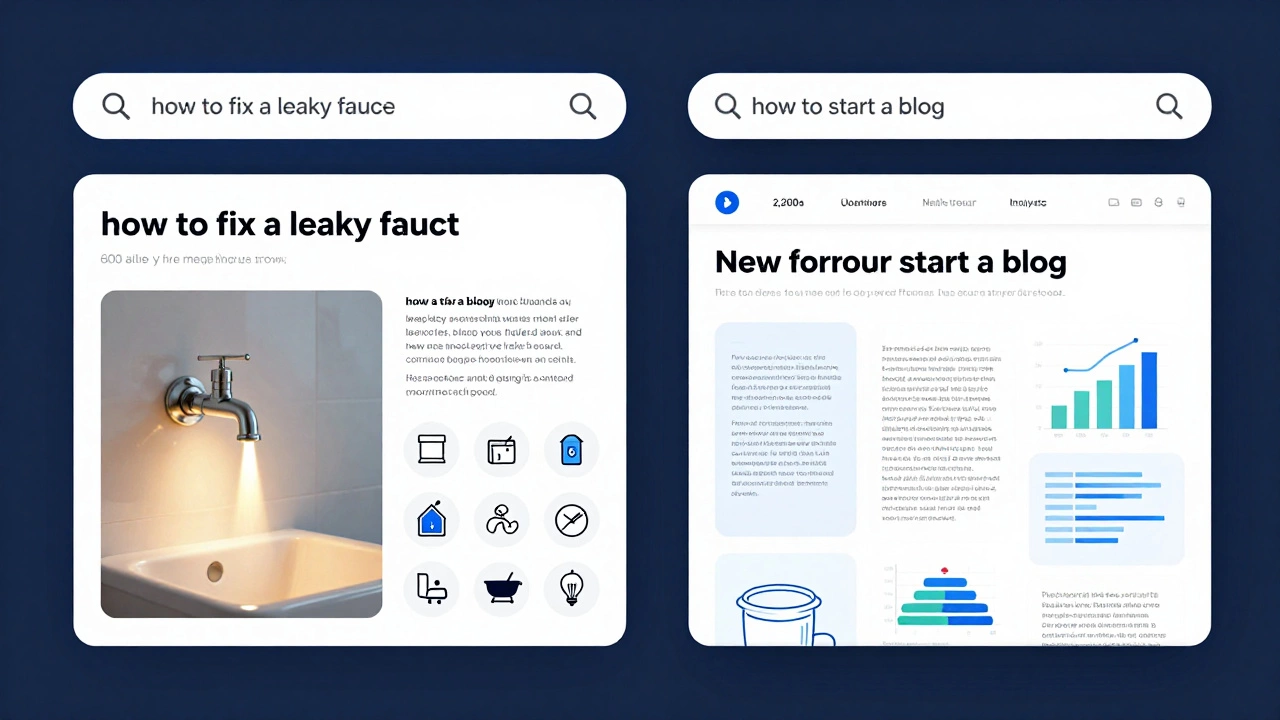Blogging SEO Made Simple: Write, Length, and Keywords that Rank
If you’ve ever wondered why some Indian blogs pop up on the first page while yours stays hidden, the answer is usually the same – solid SEO basics. In 2025 Google cares more about relevance, freshness, and user experience than ever before. The good news? You don’t need a tech degree to meet those standards. Grab a notebook, and let’s break down the three things that boost a blog’s visibility: writing style, word count, and keyword choices.
Write Posts That Google Loves
First up, the way you write matters. Start with a clear headline that includes your main keyword – for example, “How to Write Blog Posts for SEO.” Google scans headings for relevance, so keep them honest and specific. Inside the article, sprinkle your target keyword naturally; aim for a 1% to 1.5% density, but never force it. Use short sentences, bullet points, and sub‑headings to make the post skimmable. Remember, a reader should finish the article without feeling lost.
Another proven trick is to update older posts with fresh data or new examples. Google rewards content that stays current, especially when you add a quick “Updated for 2025” note at the top. Add a relevant image, an engaging intro, and a concise conclusion that reiterates the main point. All of these signals tell search engines that your content is useful and up‑to‑date.
How Long Should Your Blog Be?
Word count gets a lot of hype, but quality always beats quantity. Studies in 2025 show that the average top‑ranking post is about 1,500 words, but that’s an average, not a rule. The sweet spot is wherever you can fully answer the reader’s question without filler. If you can cover a topic thoroughly in 800 words, go for it. If the subject needs a deep dive, 2,000 words might be justified.
One practical method is to outline your article first. List the main points you want to hit, then expand each point until it feels complete. After you finish, cut any fluff that doesn’t add value. This approach ensures you hit the right length for the topic, not the opposite.
And here’s a quick tip: Google’s “People Also Ask” box often reveals the exact sub‑questions people search for. Answer those within your post, and you’ll naturally hit a good word count while boosting relevance.
Now, let’s talk keywords – the third pillar of strong blogging SEO.
Finding the right keywords is like fishing with the right bait. Start with a broad term related to your niche, then drill down to long‑tail variations that have lower competition but clearer intent. Tools like Google Keyword Planner, Ahrefs, or even the search suggestions in Google can reveal phrases like “best blogging keywords for SEO 2025” or “ideal blog word count for ranking.”
When you pick a keyword, check two things: search volume and intent. High volume with commercial intent works for product pages, while informational intent (e.g., “how to write blog posts for SEO”) is perfect for guides. Sprinkle the primary keyword in the title, first paragraph, one sub‑heading, and naturally throughout the content.
Finally, don’t forget related terms. Synonyms and variations help Google understand context and can capture additional traffic. If your main keyword is “blog SEO tips,” also use “optimizing blog posts,” “SEO for bloggers,” and “search engine friendly blogging.” This semantic approach boosts rankings without sounding repetitive.
Putting it all together – write clear, keyword‑rich posts, aim for a length that fully answers the question, and choose keywords that match user intent – is the recipe for blogging success in India’s fast‑moving digital scene. Start applying these steps today, and watch your articles climb the SERPs.
- Arjun Bhardwaj
- 1-12-25
- Blogging SEO
Do Blog Comments Help SEO? Here’s What Actually Works in 2025
Blog comments don't directly boost SEO rankings, but they can improve engagement, trust, and content depth - all of which help Google see your site as valuable. Learn how to use comments the right way in 2025.
Details- Arjun Bhardwaj
- 1-12-25
- Blogging SEO
What Is the Ideal Blog Length for SEO in 2025?
The ideal blog length for SEO isn't a fixed number - it's the right amount of words to fully answer your reader's question. Learn how to find your perfect length in 2025.
Details- Arjun Bhardwaj
- 25-05-25
- Blogging SEO
How to Write Blog Posts for SEO: Simple Steps That Work
Want your blog posts to show up on Google? This article explains how to write posts that actually rank. You’ll find out how to choose the right keywords and where to put them. Discover how to make your articles easy to read while impressing search engines. Learn sneaky ways Google rewards updated content and fresh ideas. Get real tips you can start using right away—no jargon, just what works in 2025.
Details- Arjun Bhardwaj
- 12-05-25
- Blogging SEO
How Long Should Blogs Be for SEO?
Wondering how many words your blog posts need for the best SEO results? This article digs into what really works in 2025. It covers the sweet spot for blog length, why quality matters more than length, and how Google actually treats short and long posts. There are actionable tips, real examples, and ways to find the right approach for your own blog. No guesswork—just straight answers and strategies that help you rank.
Details- Arjun Bhardwaj
- 17-02-25
- Blogging SEO
Best Blogging Keywords for Top SEO Results
Finding the right keywords is crucial for successful blogging. Effective keyword research means knowing your audience and aiming for the balance between search volume and competition. With long-tail keywords, you have a chance to target more specific search intent, bringing more engaged readers to your content. Understand tools and metrics, and you’ll be well on your way to optimizing your blog for search engines without losing a human touch.
Details



